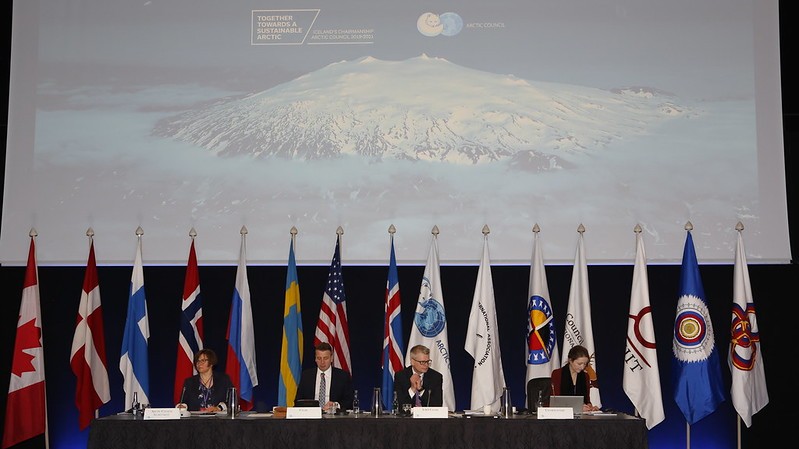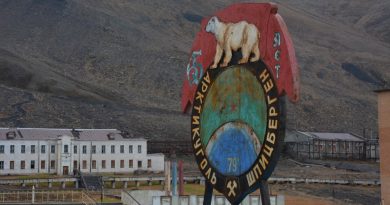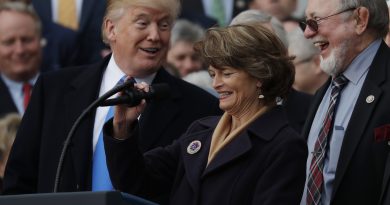Blog: The Arctic Council is back on track … or is that a rut?

What a relief this would have been to the old hands in the Arctic Council family.
After three successive dramatic Ministerials, here at last was a return to ‘normal’: to the cooperative, science-driven and Indigenous-inclusive forum that we all know and love, as the eight Arctic Foreign Ministers and the six Indigenous Permanent Participants came together in Reykjavik to affirm their commitment to “maintain peace, stability and constructive cooperation in the Arctic.”
The last such event was back in Sweden in 2013. Since then we have seen the 2015 Iqaluit Ministerial marred by the Russian invasion of Crimea, Canadian provocation over such, and the consequent snubbing by Russian Foreign Minister Sergey Lavrov, the only Ministerial he has missed since 2004. The 2017 Ministerial faced eleventh hour re-negotiations while Secretary of State Rex Tillerson flew from Washington DC to Fairbanks, with the United States refusing, and then conceding, to include reference to the Paris Agreement. And in 2019 in Rovaniemi, we saw Secretary of State Mike Pompeo make an incendiary speech calling out Canada, Russia and China for various transgressions on the eve of the Ministerial, before refusing to accept any mention of the term ‘climate change’ in the Ministerial Declaration; as a result, for the first time, none was issued, and the forum hit a low point.
And so the Arctic Council is back on track. A reasonable observer might ask if it is really a rut. After years of contemplating the need for reform – of evolving from its narrow, politically negotiated structure from the mid 1990s into one that better matches the many urgencies facing the region today – the long awaited, and first, strategic plan of the Arctic Council is a beautifully written, entirely predictable affirmation of everything the forum does already. To understand the Arctic Council in 2013 is to understand it in 2021, and now probably in 2030. One could create a template for each Ministerial’s press release, with the location, Chair, and number of deliverables changing, but the fundamentals remaining largely the same. Steady as she goes.
Will Russian Chairmanship up the ambition?
For those of us that were inspired in the past decade by the Polar Code, the Arctic Coast Guard Forum, and the Central Arctic Ocean fisheries agreement, the Russian Chairmanship offers a glimmer of ambition. If anyone has the heft and interest in the Arctic to dig the forum out of its rut, it is they. Lavrov asserted in his remarks that Russia is interested and willing to host an Arctic Summit of the heads of government, including Biden and Putin; and will push to reconvene the Arctic Military Chiefs of Staff, after they were suspended following Crimea. For those like myself that think confidence-building is key to keeping the region peaceful, that would be a win. For those that want to sanction Russia for its many misdeeds on the global stage, it would be a step too far.
As for that race for resources, the ECONOR 2020 report, a regional economic study released today alongside dozens of high quality scientific assessments for which the Arctic Council is known for, confirms that the region’s economy has grown less than 1% annually since 2012. The Arctic Council has always struggled with finding the balance between supporting sustainable development and environmental protection in a region that is economically dominated by the extractive resources. All indications are that slow, state-led growth will remain the region’s preference.
I have every reason to believe that the scientific plans, assessment, reports and studies of the Working Groups and Task Forces are essential to efforts to protect the Arctic environment and centre the perspectives and interests of Indigenous peoples. But it is not easy to get an understanding of their impact or their uptake. Their efforts rarely find an audience outside the halls of the Arctic Council family, let alone with the general public.
There are far worse things to be than quietly competent, and we have all witnessed and indeed experienced in the past five years. But there is a danger in being satisfied with the status quo. The Arctic Council follows rather than leads the Arctic states. That is not its fault; but it is its burden.
Related stories from around the North:
Canada: With U.S. climate drama behind them, can the Arctic Council turn the page in Reykjavik?, Eye on the Arctic
Finland: Finnish PM stresses importance of Arctic Council for region’s stability amidst climate change, Yle News
Iceland: With U.S. climate drama behind them, can the Arctic Council turn the page in Reykjavik?, Eye on the Arctic
India: Pole to Pole: India’s Arctic White Paper, Blog by Marc Lanteigne
Norway: Norway’s FM confirms participation in upcoming Arctic Council ministerial, The Independent Barents Observer
Russia: Return to form for Arctic Council as Russia assumes leadership from Iceland, Eye on the Arctic
United States: Russian, U.S. foreign ministers to meet on sidelines of Arctic Council meeting, Eye on the Arctic


